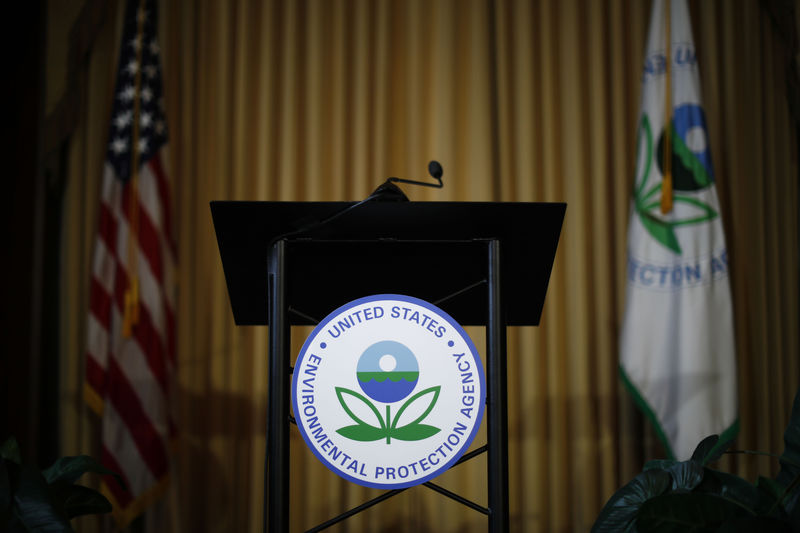By Jarrett Renshaw
NEW YORK (Reuters) - U.S. President Donald Trump has directed members of his Cabinet to review the administration’s expanded use of waivers exempting small refineries from the nation’s biofuel policy, after hearing from farmers angry about the issue during his recent Midwest tour, according to three sources familiar with the matter.
Trump's move underscores the rising political importance of the U.S. Renewable Fuel Standard, a more than decade-old law which requires refineries to blend corn-based ethanol into their gasoline to help farmers, but which also provides waivers to small refining facilities that can prove compliance would cause them financial harm.
Since Trump took office, the Environmental Protection Agency has more than quadrupled the number of waivers it has granted, saving the oil industry hundreds of millions of dollars, but enraging another key constituency - corn growers - who claim the move threatens demand for one of their staple products.
Trump heard from disgruntled farmers and their political backers on the issue earlier this month when he visited the Midwest to tout his administration's decision to lift a ban on summer sales of higher ethanol blends of gasoline called E15. Farmers welcomed that move but warned Trump it was negated by the surge in small refinery exemptions.
The sources said Trump, upon returning from his trip, asked the heads of the EPA and the U.S. Department of Agriculture to find solutions to address the farmers’ concerns. They said the EPA is now considering limiting use of the waivers or forcing larger refiners to make up for the exempted gallons - or a combination of both.
"I think Trump realized he may have a political problem and told (EPA Administrator Andrew) Wheeler to fix it,” said one of the sources, a refining industry lobbyist who was briefed on the matter and asked not to be named.
The EPA, in a statement on Thursday, said the "EPA will continue to work with the White House, USDA, members of Congress and other stakeholders to ensure the Renewable Fuel Standard's continued stability."
The USDA and the White House did not respond to requests for comment.
Any move to alter the small refinery waiver program would face resistance from the oil industry, already stung by the administration’s expansion of E15 sales.
They view the government support for biofuels as a competitive threat to petroleum, and argue that the waiver program is now being run as Congress intended.
"The president has made promises to refiners, too. He promised to keep refineries competitive and he made promises to keep regulatory costs down, and we hope he keeps those promises," said, Derrick Morgan, senior vice president of the refining trade group American Fuel and Petrochemical Manufacturers.
Trump's expansion of the waiver program has become an unlikely talking point for several Democrats https://www.reuters.com/article/us-usa-election-klobuchar/democratic-presidential-hopeful-klobuchar-proposes-revamping-epa-ethanol-rules-idUSKCN1SY1KE vying to defeat him in the 2020 presidential election, including Senators Amy Klobuchar and Elizabeth Warren, who believe it can help turn farmers already stung by the trade wars against him.
The EPA granted 35 exemptions for 2017, up from seven in the last year of the Obama administration, according to agency data. That included waivers for refineries owned by profitable majors like Exxon Mobil Corp (NYSE:XOM) and Chevron Corp (NYSE:CVX), as well as one owned by billionaire investor Carl Icahn.
The exemptions represent more than 2 billion gallons of potentially lost demand for ethanol, the biofuel industry says. However, the extent of the actual demand destruction, if any, is a matter of intense debate.

The EPA has delayed action on the 39 pending applications for the 2018 calendar year.